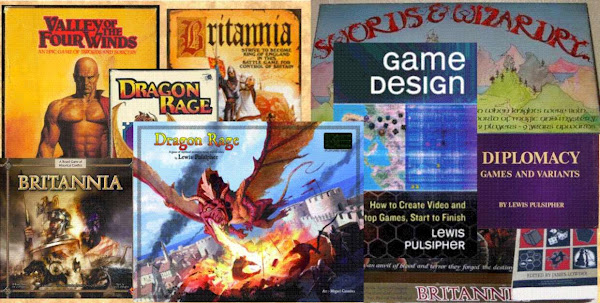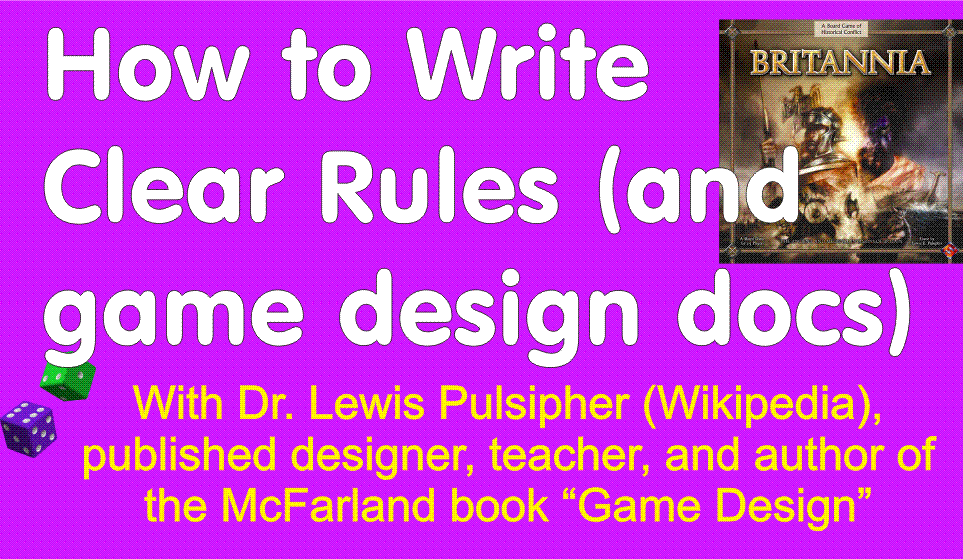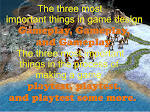In December 2012, Dave Shapiro contacted me to contribute to a book about Risk he was co-authoring.This took the form of answers to a series of questions. The book appeared recently, sans this material. This is part 4.
Risk has been published for more than 50 years. It has sold millions of copies around the world. As a designer, how do you approach the re-design of a game with such a long tradition?
What I’m doing when I design a Risk variant is taking advantage of the essence of the very simple game system rather than trying to change it. I’m changing the setting, and perhaps in the course of modeling the new setting I modify the rules to make the game a better model. But given the nature of the Risk game system no game based on Risk is going to be a good model of any reality, not in my view. [A few years ago I designed a Zombie Risk, which works well but needs more testing.]
Britannia is probably your best known design. What games influenced the design of the game? (Specifically, was Risk a factor?)
No, Risk was not a factor. I don’t know where the combat system in Britannia comes from, I suspect I made it up whole cloth although it’s quite simple, but I know I didn’t want a combat system like the one in Risk because it doesn’t recognize the "principle of mass." In Risk the combat is the same when you’re 40 armies attacking 2 as when you have 3 armies attacking 2 (yes, there needs to be 4 to have 3 attack). I would never put a combat system like that into a standalone game because to me it flies so much in the face of reality. But it is that combat system that goes a long way to make the Risk a game of conquest and attack, because the attacker can always get the advantage even if there are far more defending armies than there are attacking armies, as long as the attacker has at least three attacking armies. In the real world if you have 15 armies and your opponent has 20 you usually dig in and defend. In Risk, if you know you’re going to fight sooner or later, you want to attack as long as you can attack with three armies, because the enemy will lose more than you will. This makes virtually no sense in reality, though I've heard apologists try to explain it.
The only influence on Britannia I recall is that at some point I read the rules for a game called Ancient Conquest, which as far as I know was the first game where the player controlled more than one nation over a large timescale. I incorporated that idea into Britannia but in every other way the game is quite different. Ancient Conquest used a hex board where Britannia uses an area board, it used the typical Avalon Hill style counters with attack and defense factors and movement factors and a combat table, it had all nations of a player playing at the same time, allowed those nations to cooperate directly; and perhaps most important of all Ancient Conquest was a battle game rather than a war game. That is, there is no economy, as if it were a battle taking place over a few days instead of wars taking place over many centuries. The economy is a vital part of Britannia, though it also has aspects of battle games in the order of appearance. (By the way, Ancient Conquest I (it had a sequel that I’ve never seen) is now back in print from Excalibre Games.)
There are now at least ten games based on the Britannia system, did you expect the game to become so popular?
I don’t think the possibility ever occurred to me, I was just happy at the prospect of getting it published. Though by the time it was published, two years after I’d submitted it to Gibsons, I had withdrawn from the game hobby and just played Dungeons & Dragons with my friends. When the English edition of Britannia arrived I looked at it and said “that’s nice” and did not even read the rules, because there was nothing I could do to influence it further. The next year, when Avalon Hill decided to do an edition of Britannia - a few years earlier they told me that games of that era didn’t sell and rejected it - they sent me a list of questions. But at that time I’d not played the published game, had not even read the rules, so I was no help at all. I did not actually see the published game played until 2004.
I didn’t even know that Maharajah existed until about that same time. That seems to be the most slavishly derivative of the Britannia-like games right down to having the same number of land areas and nations.
After completing a game, have you ever wished you had changed something?
I think that’s typical. On the other hand you recognize that as long as you did your part there's not anything more you can do. Sometimes published games are pretty much screwed up by the publisher, and there were some things caused by misunderstandings that were really “wrong” with the 1986 and 1987 editions of Britannia that I fixed - put back the way they were supposed to be - in the Fantasy Flight edition in 2006.
As I say in my game design book, you never really finish a game, it just comes to a point where the time it takes to improve it is not worth the value of the improvement. But if you get the opportunity to do a second edition it ought to be better than the first because you can take advantage of the vast body of playtesting, and that’s what I did with Britannia by getting in touch with people who still played it years after it was out-of-print and Avalon Hill was no more.
After any of your games were published, was there anything that surprised you in the strategies of the players?
Given my peculiar history in the game industry, being away from it for 20 years, and many other games originating more than 30 years ago, I don’t know that I can answer that question!
You certainly hope there aren't new strategies that become dominant. For example, recently someone discovered a can't-miss strategy in "A Few Acres of Snow" (the Halifax Hammer?) that required a change in the rules. That's not something any designer wants to have happen!
END PART 4










